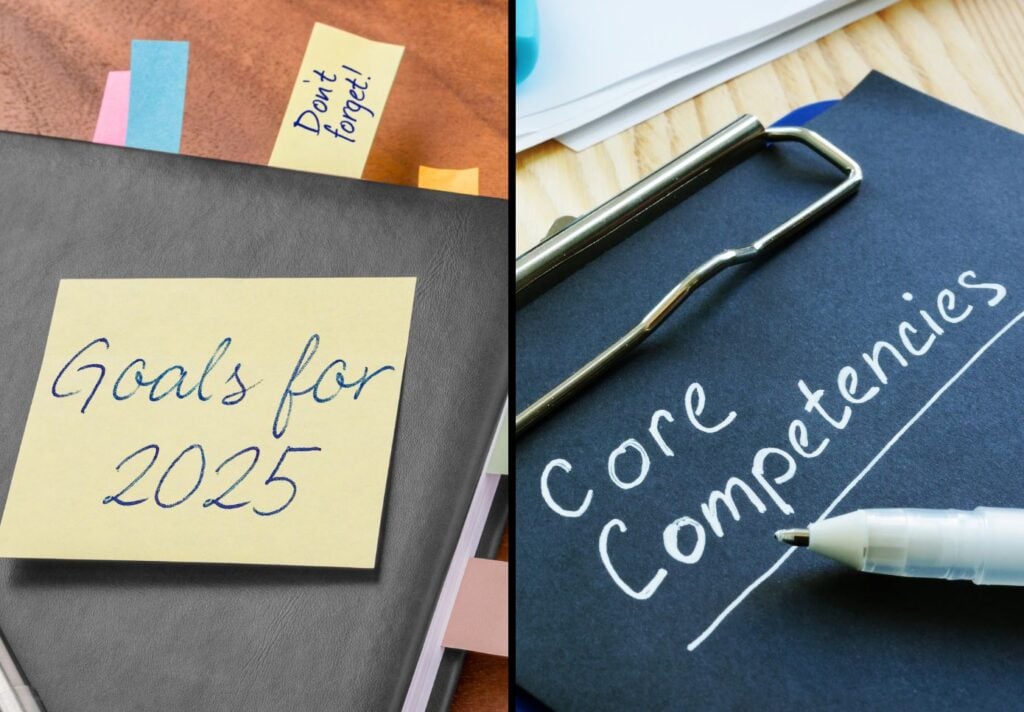
Performance Review Advice: Understanding Goals vs. Competencies
Managers should use the performance review period to monitor and assess goals and competencies in their subordinates. Below, we look closer at these concepts.
Goals
Goals are specific and measurable objectives that a subordinate is expected to achieve within a certain timeframe. Goals are often aligned with the organization’s broader goals and strategic direction. Examples include:
- Completing a project
- Achieving a sales target
- Improving a process to reduce costs
During the performance review period, managers should use metrics and data to evaluate whether objectives were met. This can involve quantitative measures (e.g., sales figures) and/or or qualitative assessments (e.g., project completion quality).
Essentially, goals provide clear targets to subordinates and help direct their efforts toward key results and organizational priorities. They are the “what” that subordinates are expected to achieve.
Competencies
Competencies refer to skills, behaviors, and attributes that a subordinate must demonstrate in order to perform their job effectively. Competencies encompass both technical abilities and interpersonal skills.
During the performance review period, managers should evaluate competencies through ongoing interactions, as well as rely on observations, feedback, and performance data. While objective criteria are used here, assessing competencies is typically more subjective than assessing goals.
Essentially, competencies refer to “how” subordinates are expected to carry out their responsibilities and achieve their goals.
Both Goals and Competencies are Important
Establishing and evaluating goals and competencies help managers identify areas for growth, as well as determine professional development and training needs. Goals highlight goal attainment, and competencies show areas for skill enhancement.
In addition, both goals and competencies help ensure that a subordinate’s aim and actions align with organizational goals. Goals drive performance towards strategic outcomes, while competencies ensure employees have the necessary skills and behaviors to sustain long-term success.
Ultimately, while objectives and competencies serve different purposes in performance reviews, their integration provides a balanced and thorough evaluation of employee performance, supporting both individual development and organizational success.


 Our HR solutions experts can recommend the right mix of HR outsourced services to make your entry into Canada easier.
Our HR solutions experts can recommend the right mix of HR outsourced services to make your entry into Canada easier.  Pivotal Employment Management Services co-hires your workforce, simplifying entry of your business in Canada.
Pivotal Employment Management Services co-hires your workforce, simplifying entry of your business in Canada. 















